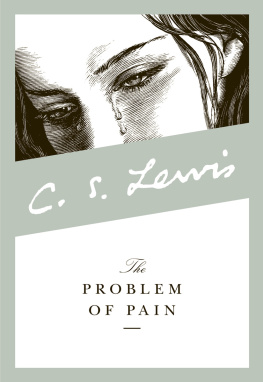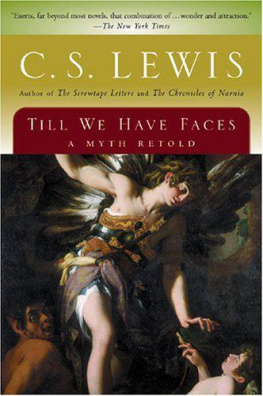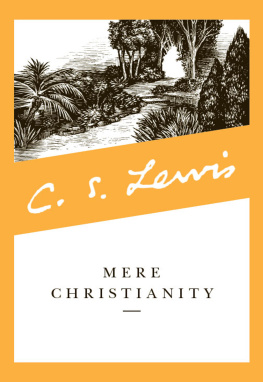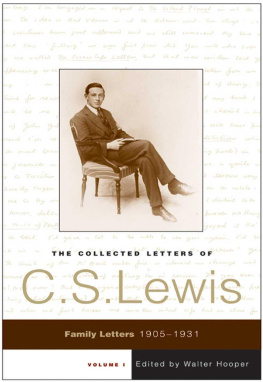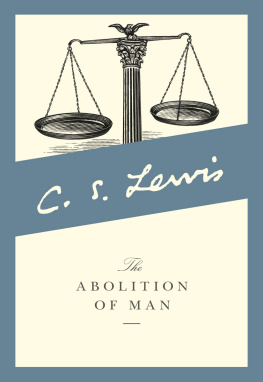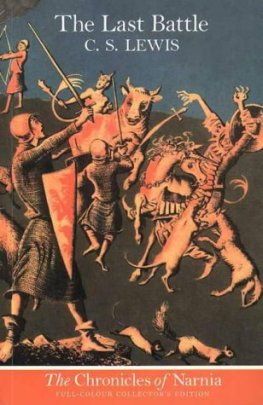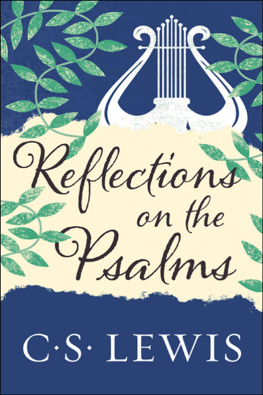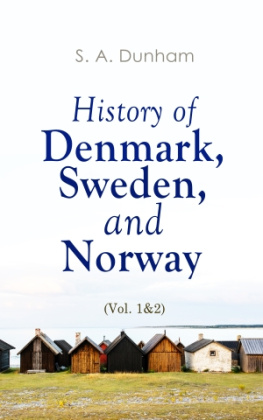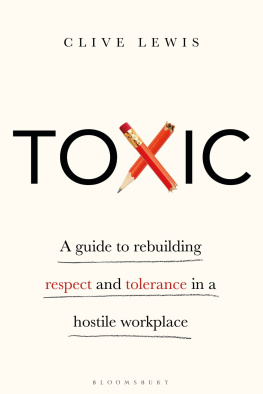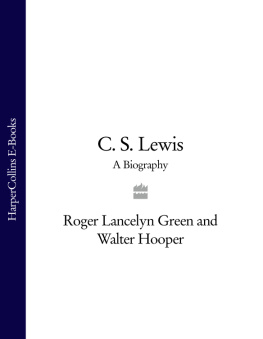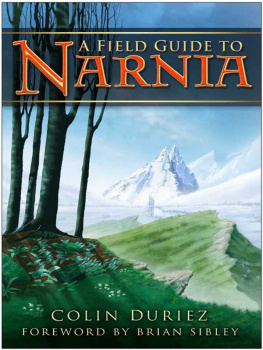Clive Staples Lewis - The problem of pain
Here you can read online Clive Staples Lewis - The problem of pain full text of the book (entire story) in english for free. Download pdf and epub, get meaning, cover and reviews about this ebook. year: 2001, publisher: Harper San Francisco, genre: Science. Description of the work, (preface) as well as reviews are available. Best literature library LitArk.com created for fans of good reading and offers a wide selection of genres:
Romance novel
Science fiction
Adventure
Detective
Science
History
Home and family
Prose
Art
Politics
Computer
Non-fiction
Religion
Business
Children
Humor
Choose a favorite category and find really read worthwhile books. Enjoy immersion in the world of imagination, feel the emotions of the characters or learn something new for yourself, make an fascinating discovery.
- Book:The problem of pain
- Author:
- Publisher:Harper San Francisco
- Genre:
- Year:2001
- Rating:5 / 5
- Favourites:Add to favourites
- Your mark:
- 100
- 1
- 2
- 3
- 4
- 5
The problem of pain: summary, description and annotation
We offer to read an annotation, description, summary or preface (depends on what the author of the book "The problem of pain" wrote himself). If you haven't found the necessary information about the book — write in the comments, we will try to find it.
The problem of pain — read online for free the complete book (whole text) full work
Below is the text of the book, divided by pages. System saving the place of the last page read, allows you to conveniently read the book "The problem of pain" online for free, without having to search again every time where you left off. Put a bookmark, and you can go to the page where you finished reading at any time.
Font size:
Interval:
Bookmark:

To
The Inklings
The Son of God suffered unto the death, not that men might not suffer, but that their sufferings might be like His.
GEORGE MACDONALD ,
Unspoken Sermons, First Series
Introductory
Divine Omnipotence
Divine Goodness
Human Wickedness
The Fall of Man
Human Pain
Human Pain, Continued
Hell
Animal Pain
Heaven
When Mr Ashley Sampson suggested to me the writing of this book, I asked leave to be allowed to write it anonymously, since, if I were to say what I really thought about pain, I should be forced to make statements of such apparent fortitude that they would become ridiculous if anyone knew who made them. Anonymity was rejected as inconsistent with the series; but Mr Sampson pointed out that I could write a preface explaining that I did not live up to my own principles! This exhilarating pro-gramme I am now carrying out. Let me confess at once, in the words of good Walter Hilton, that throughout this book I feel myself so far from true feeling of that I speak, that I can naught else but cry mercy and desire after it as I may. adversary, I am that man. I must add, too, that the only purpose of the book is to solve the intellectual problem raised by suffering; for the far higher task of teaching fortitude and patience I was never fool enough to suppose myself qualified, nor have I anything to offer my readers except my conviction that when pain is to be borne, a little courage helps more than much knowledge, a little human sympathy more than much courage, and the least tincture of the love of God more than all.
If any real theologian reads these pages he will very easily see that they are the work of a layman and an amateur. Except in the last two chapters, parts of which are admittedly speculative, I have believed myself to be restating ancient and orthodox doctrines. If any parts of the book are original, in the sense of being novel or unorthodox, they are so against my will and as a result of my ignorance. I write, of course, as a layman of the Church of England: but I have tried to assume nothing that is not professed by all baptised and communicating Christians.
As this is not a work of erudition I have taken little pains to trace ideas or quotations to their sources when they were not easily recoverable. Any theologian will see easily enough what, and how little, I have read.
C. S. L EWIS
Magdalen College, Oxford, 1940
I wonder at the hardihood with which such persons undertake to talk about God. In a treatise addressed to infidels they begin with a chapter proving the existence of God from the works of Naturethis only gives their readers grounds for thinking that the proofs of our religion are very weak. It is a remarkable fact that no canonical writer has ever used Nature to prove God.
PASCAL , Penses , IV , 242, 243
Not many years ago when I was an atheist, if anyone had asked me, Why do you not believe in God? my reply would have run something like this: Look at the universe we live in. By far the greatest part of it consists of empty space, completely dark and unimaginably cold. The bodies which move in this space are so few and so small in comparison with the space itself that even if every one of them were known to be crowded as full as it could hold with perfectly happy creatures, it would still be difficult to believe that life and happiness were more than a by-product to the power that made the universe. As it is, however, the scientists think it likely that very few of the suns of spaceperhaps none of them except our ownhave any planets; and in our own system it is improbable that any planet except the Earth sustains life. And Earth herself existed without life for millions of years and may exist for millions more when life has left her. And what is it like while it lasts? It is so arranged that all the forms of it can live only by preying upon one another. In the lower forms this process entails only death, but in the higher there appears a new quality called consciousness which enables it to be attended with pain. The creatures cause pain by being born, and live by inflicting pain, and in pain they mostly die. In the most complex of all the creatures, Man, yet another quality appears, which we call reason, whereby he is enabled to foresee his own pain which henceforth is preceded with acute mental suffering, and to foresee his own death while keenly desiring permanence. It also enables men by a hundred ingenious contrivances to inflict a great deal more pain than they otherwise could have done on one another and on the irrational creatures. This power they have exploited to the full. Their history is largely a record of crime, war, disease, and terror, with just sufficient happiness interposed to give them, while it lasts, an agonised apprehension of losing it, and, when it is lost, the poignant misery of remembering. Every now and then they improve their condition a little and what we call a civilisation appears. But all civilisations pass away and, even while they remain, inflict peculiar sufferings of their own probably sufficient to outweigh what alleviations they may have brought to the normal pains of man. That our own civilisation has done so, no one will dispute; that it will pass away like all its predecessors is surely probable. Even if it should not, what then? The race is doomed. Every race that comes into being in any part of the universe is doomed; for the universe, they tell us, is running down, and will sometime be a uniform infinity of homogeneous matter at a low temperature. All stories will come to nothing: all life will turn out in the end to have been a transitory and senseless contortion upon the idiotic face of infinite matter. If you ask me to believe that this is the work of a benevolent and omnipotent spirit, I reply that all the evidence points in the opposite direction. Either there is no spirit behind the universe, or else a spirit indifferent to good and evil, or else an evil spirit.
There was one question which I never dreamed of raising. I never noticed that the very strength and facility of the pessimists case at once poses us a problem. If the universe is so bad, or even half so bad, how on earth did human beings ever come to attribute it to the activity of a wise and good Creator? Men are fools, perhaps; but hardly so foolish as that. The direct inference from black to white, from evil flower to virtuous root, from senseless work to a workman infinitely wise, staggers belief. The spectacle of the universe as revealed by experience can never have been the ground of religion: it must always have been something in spite of which religion, acquired from a different source, was held.
It would be an error to reply that our ancestors were ignorant and therefore entertained pleasing illusions about nature which the progress of science has since dispelled. For centuries, during which all men believed, the nightmare size and emptiness of the universe was already known. You will read in some books that the men of the Middle Ages thought the Earth flat and the stars near, but that is a lie. Ptolemy had told them that the Earth was a mathematical point without size in relation to the distance of the fixed starsa distance which one medieval popular text estimates as a hundred and seventeen million miles. And in times yet earlier, even from the beginnings, men must have got the same sense of hostile immensity from a more obvious source. To prehistoric man the neighbouring forest must have been infinite enough, and the utterly alien and infest which we have to fetch from the thought of cosmic rays and cooling suns, came snuffing and howling nightly to his very doors. Certainly at all periods the pain and waste of human life was equally obvious. Our own religion begins among the Jews, a people squeezed between great warlike empires, continually defeated and led captive, familiar as Poland or Armenia with the tragic story of the conquered. It is mere nonsense to put pain among the discoveries of science. Lay down this book and reflect for five minutes on the fact that all the great religions were first preached, and long practised, in a world without chloroform.
Font size:
Interval:
Bookmark:
Similar books «The problem of pain»
Look at similar books to The problem of pain. We have selected literature similar in name and meaning in the hope of providing readers with more options to find new, interesting, not yet read works.
Discussion, reviews of the book The problem of pain and just readers' own opinions. Leave your comments, write what you think about the work, its meaning or the main characters. Specify what exactly you liked and what you didn't like, and why you think so.

